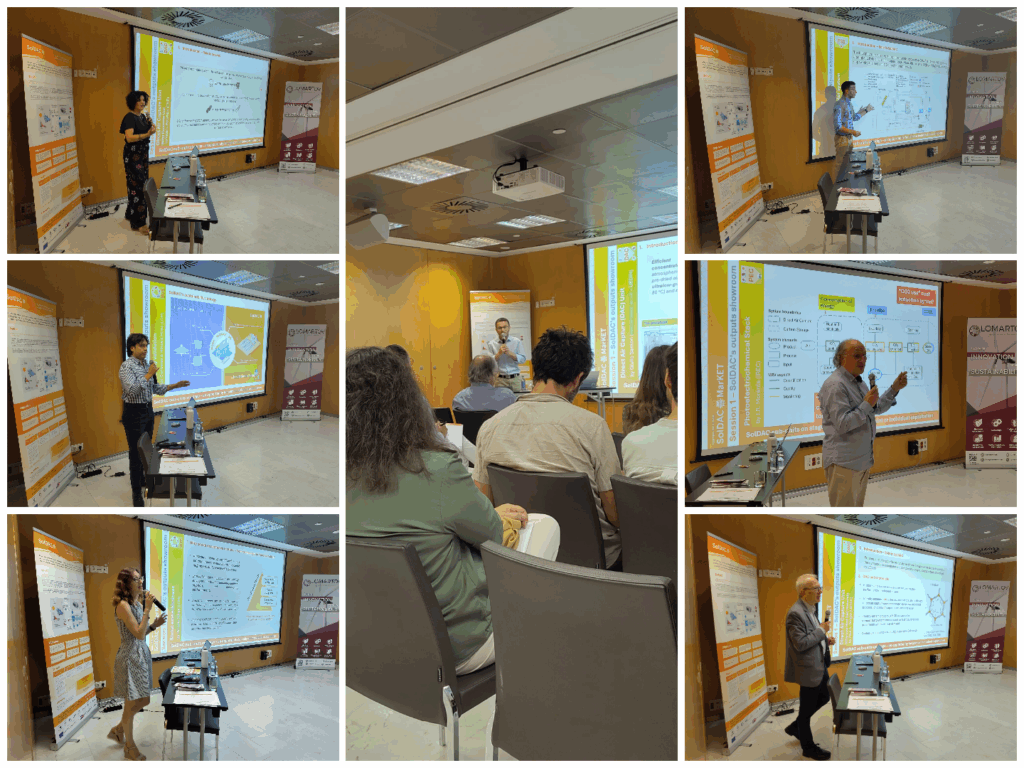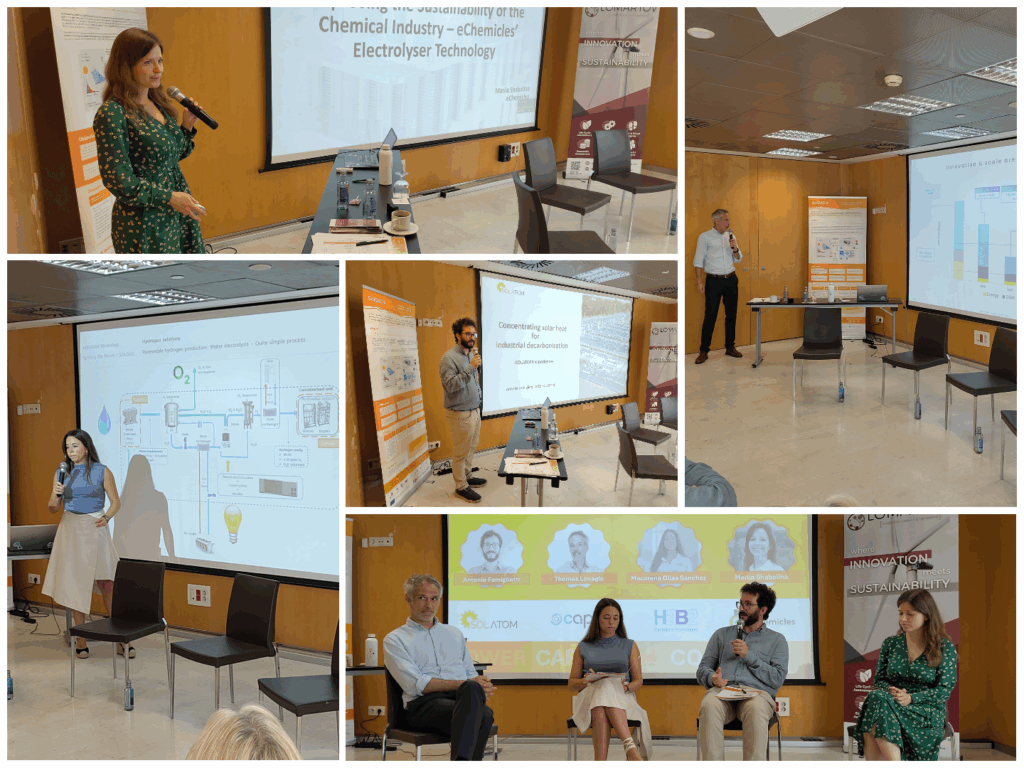On June 25, 2025, in Barcelona, the “Igniting the Future: SolDAC Meets the Market” workshop gathered scientists, engineers, entrepreneurs, and innovators. The event, held at the Sercotel Caspe, aimed to share progress, reflect, and plan the next steps for the SolDAC project.

The workshop began with presentations from the SolDAC consortium, detailing how full-spectrum solar energy (FSS), direct air capture (DAC), and photoelectrochemical (PEC) conversion are being combined.
Speakers like Giulio Santori (University of Edinburgh), Paul A. Wright (University of Sant Andrews), Valeria Palomba (CNR-ITAE), Joan Ramon Morante (IREC) and Daniel Chemisana (Universitat de Lleida) explained their work, from solar thermal integration to advanced PEC cell design, emphasizing the potential to combine different units. Also Edgar Contreras and Mihaela Mirea from Lomartov highlighted the LCA results and social impacts of developing SolDAC.

SolDAC’s ambitious goal is to simultaneously capture CO₂ from the air and convert it into ethylene using only solar energy. This process could replace traditional fossil fuel-dependent chemical production, offering a potentially carbon-negative, renewable alternative.
Later, the “Market Pulse: Industry Voices” panel focused on real-world applications and current initiatives. Experts from decarbonisation and cleantech, including Thomas Louagie (Captur Tower), Antonio Famiglietti (SOLATOM), Macarena Olias Sanchez (H2B2 Electrolysis Technologies), and Mariia Shabalina (eChemicles), discussed topics like DAC scalability, green hydrogen infrastructure, and solar thermal integration.

While the science is promising, the path to scale is complex. Key challenges identified were the need for regulatory support, successful system integration into existing supply chains, and building cost effective and competitive operational units. Despite these hurdles, the panel was optimistic, recognizing SolDAC’s unique potential by combining proven solar technologies with cutting-edge catalysis and system design.
The workshop’s success wasn’t just in its content but also in the collaborative energy. Conversations sparked among participants, leading to feedback, pilot plans, and new collaboration ideas. For the SolDAC team, the event was a catalyst, with industry insights and attendee feedback directly influencing technical adjustments and strategic positioning in the project’s final sprint. It also reinforced the importance of trust, shared vision, and momentum in innovation.

As SolDAC enters its final phase, the focus is on demonstration, validation, and dissemination. Remaining steps include scaling up the integrated FSS, DAC, and PEC units under real conditions, optimizing efficiency to meet commercial benchmarks, engaging a wider network of stakeholders (industry, regulators, investors), and outreach to explain why carbon-neutral chemicals are vital and how SolDAC provides a credible path forward. The project is at a critical and exciting stage: the science is robust, the team is committed, and the market is taking notice.
SolDAC addresses the urgent need to decarbonise the global chemical industry, which heavily relies on fossil fuels. By pioneering clean, scalable, and decentralised solar-to-chemical pathways, SolDAC helps Europe lead the transition to climate-neutral production.